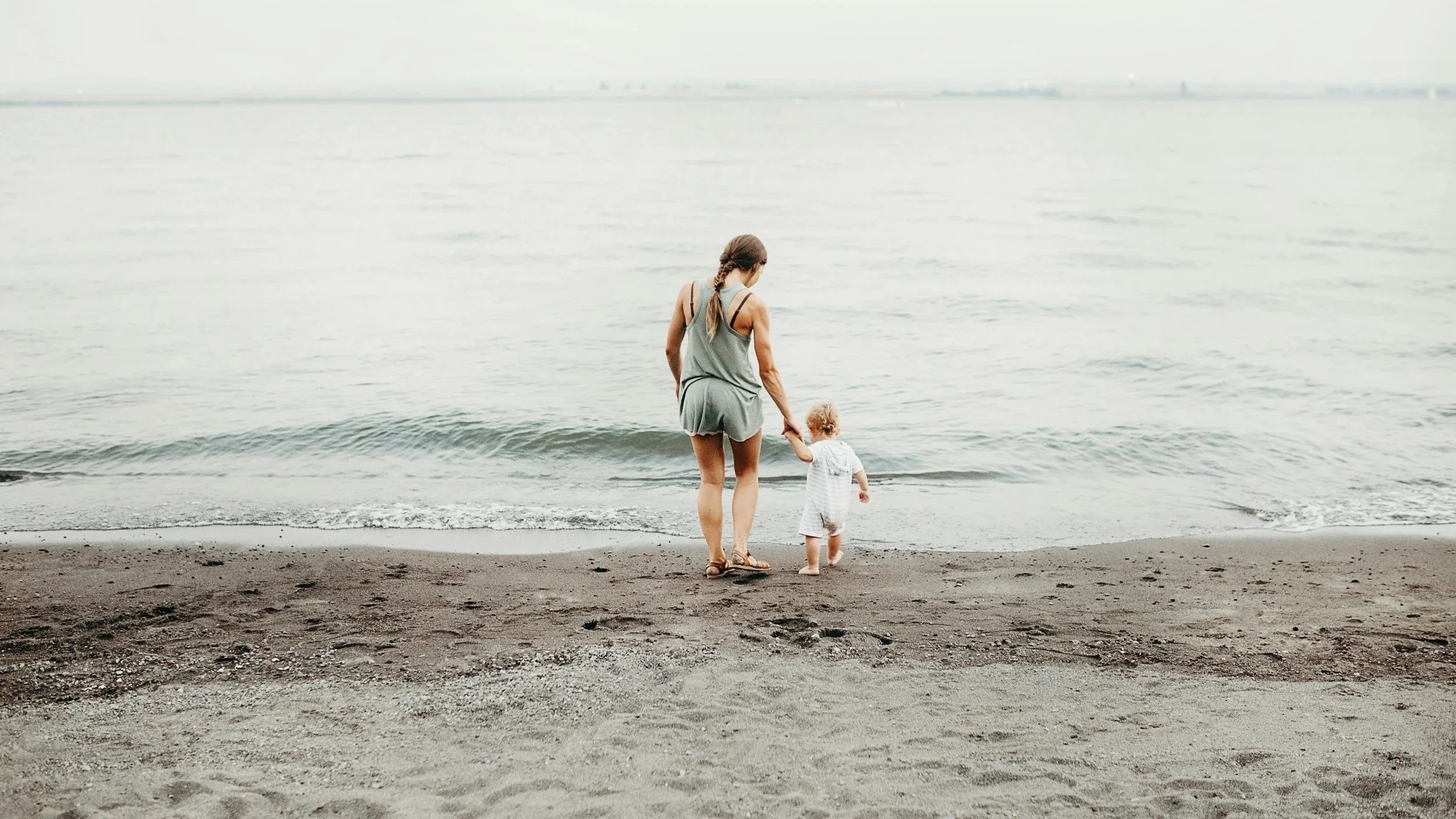When Postpartum Wasn’t What I Expected: My Story of Grief, Anxiety, and Becoming a Mother
“Becoming a mother leaves no woman as it found her. It unravels her and rebuilds her. It cracks her open, takes her to her edges. It's both beautiful and brutal; often at the same time.” — Nikki McCahon
When I first read these words, they stopped me in my tracks. They put language to something I couldn’t.
I had wanted to be a mom for so long. I prayed for it, dreamed about it, counted down the years. So when I finally held my baby, I thought all I would feel was joy and gratitude.
But the truth was more complicated.
I loved my baby deeply, but I was also tearful, lonely, anxious, and so very tired. I told myself I wasn’t allowed to feel anything other than gratitude, so I pushed down the sadness and grief. On the outside, I looked fine. Inside, I was unraveling.
This was supposed to be the happiest time of my life, so why did it feel like anguish? The guilt was crushing. Some of my closest friends were still waiting for their chance to become mothers, and here I was—finally living that dream—yet struggling. I told myself I should only be happy, while inside I felt like I was quietly falling apart.
Nikki McCahon’s words named what I couldn’t: becoming a mother is both beautiful and brutal. I had been cracked open, and I didn’t know how to put myself back together.
What Postpartum Grief and Anxiety Felt Like for Me
No one really prepared me for how complex postpartum emotions could be. You can love your baby with your whole heart and grieve the life you had before. You can be grateful and feel anxious or overwhelmed. Both can exist at the same time.
For me, postpartum grief showed up as a deep sadness I couldn’t explain. I missed my freedom, my old rhythms, even the version of me that felt more carefree. Anxiety piled on top with racing thoughts, sleepless nights, and the feeling that I could never fully exhale.
If you’ve felt this too, please know it doesn’t mean you’re ungrateful or broken. It means you’re human—navigating one of the biggest changes of your life.
Why It All Felt So Overwhelming
Looking back, it makes sense why it felt like so much:
Hormones. The drastic shifts after birth hit me like a wave. They changed my mood, my sleep, and my ability to cope.
Identity. I no longer recognized myself. My experience of motherhood felt so different to many of the women around me - at least it appeared on the outside. Our personalities, our childhood histories, even our triggers shape how we each enter motherhood. It left me feeling unsure of who I was. Slowly, I had to rediscover myself—not just as a mom, but as a woman too.
Nervous system overload. Birth, sleep deprivation, and constant caregiving kept my body in survival mode.
Unrealistic expectations. Everywhere I looked, the message was that I should be glowing, grateful, and “bouncing back.” There was no space to admit that I was struggling.
When I put it this way, it makes sense that joy and grief collided. It makes sense that I felt lost in the middle of it all.
How It Showed Up in My Life
Here’s what it looked like for me (and maybe for you too):
Crying often, sometimes without knowing why
Feeling restless and anxious, even when my baby was calm
Lying awake at night, exhausted but unable to sleep
Guilt for not feeling “grateful enough”
A deep loneliness, even when surrounded by others
Thoughts that felt intrusive and overwhelming
The Things That Actually Helped Me Begin to Heal
The real shift began when I started therapy. For the first time, I had language for what I was feeling. Naming it lifted some of the shame. Therapy gave me space to be honest with myself, and it opened the door for me to be more honest with my husband too. I didn’t feel so alone anymore.
I also started letting go of the impossible standards I had been holding myself to—keeping the house spotless, looking put together, wearing makeup, fitting back into pre-baby jeans. I gave myself permission to just be.
And joining a moms group was another turning point. Sitting with other women who were also in the thick of postpartum reminded me that I wasn’t the only one. I didn’t have to pretend anymore. I could say, “This is hard,” and be met with nods of understanding.
These things didn’t magically erase the grief or anxiety. But they helped me carry them with more compassion and less guilt. Little by little, I started to feel more like myself again.
When You Might Want Extra Support
If your anxiety or sadness feels relentless—or if you’re struggling to function day to day—it may be time to reach out for help.
Postpartum therapy can give you a safe space to:
Process postpartum grief without judgment
Ease anxiety and intrusive thoughts
Learn nervous system tools to find calm
Let go of guilt so you can be more present with your baby
You don’t have to do this alone. With the right support, it is possible to feel steadier, calmer, and more connected—to your baby and to yourself.
A Gentle Reminder Before You Go
If you’re feeling grief or anxiety postpartum, it doesn’t mean you don’t love your baby. It means you’re human. Becoming a mother is both beautiful and brutal—often at the same time.
If these words resonate, I’d love to support you. Together, we can help you feel more grounded, less anxious, and more like yourself again.


